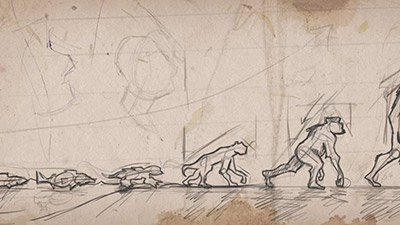How did life on Earth begin? It's been one of modern biology's greatest mysteries: How did the chemical soup that existed on the early Earth lead to the complex molecules needed to create living, breathing organisms? Now, researchers say they've found the missing link.
Between 4.6 billion and 4.0 billion years ago, there was probably no life on Earth. The planet's surface was at first molten and even as it cooled, it was getting pulverized by asteroids and comets. All that existed were simple chemicals. But about 3.8 billion years ago, the bombardment stopped, and life arose. Most scientists think the "last universal common ancestor" — the creature from which everything on the planet descends — appeared about 3.6 billion years ago.
But exactly how that creature arose has long puzzled scientists. For instance, how did the chemistry of simple carbon-based molecules lead to the information storage of ribonucleic acid, or RNA? The RNA molecule must store information to code for proteins. (Proteins in biology do more than build muscle — they also regulate a host of processes in the body.)
The new research — which involves two studies, one led by Charles Carter and one led by Richard Wolfenden, both of the University of North Carolina — suggests a way for RNA to control the production of proteins by working with simple amino acids that does not require the more complex enzymes that exist today. [7 Theories on the Origin of Life on Earth]
Hi! I am a robot. I just upvoted you! I found similar content that readers might be interested in:
https://www.yahoo.com/news/origin-life-story-may-found-missing-123319318.html
Downvoting a post can decrease pending rewards and make it less visible. Common reasons:
Submit
vote me vote for you
Downvoting a post can decrease pending rewards and make it less visible. Common reasons:
Submit